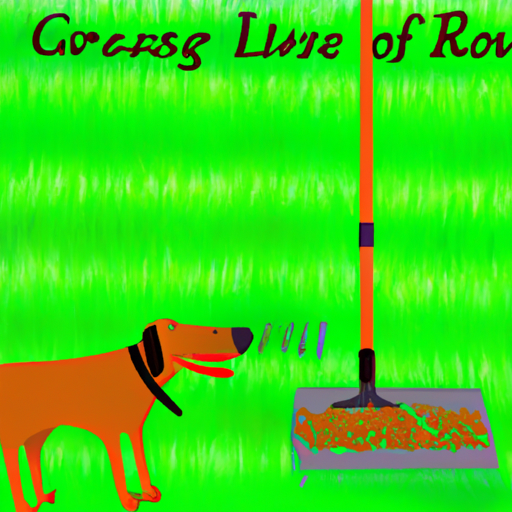As a caregiver, you understand the importance of creating a safe and healthy environment for those in your care – including your furry friends. Dogs, with their boundless energy and joy for life, can often wreak havoc on your lawn. But don’t fret! It is entirely possible to have both healthy, lush grass and happy, playful dogs. Here’s how.
Understanding Dog-Related Lawn Problems
Before diving into solutions, it’s crucial to understand the root causes of the problem. Dogs can damage grass in several ways.
- Urine Damage: Dog urine has a high concentration of nitrogen, which can cause grass to yellow and die.
- Physical Damage: Dogs love to run, dig and play, which can lead to compacted soil and damaged grass.
- Fecal Matter: While not as damaging as urine, feces can also cause damage if not promptly removed.
Choosing the Right Grass Type
Your choice of grass type can greatly affect its resilience against your furry companions. Here are some dog-friendly grass types:
- Kentucky Bluegrass: This grass type is known for its durability and ability to withstand heavy traffic.
- Perennial Ryegrass: This grass type is not only durable but also grows quickly, making it a good choice for lawns with dogs.
- Fescue: Fescue grasses like Tall Fescue or Fine Fescue are known for their tolerance to shade, heat, and drought, making them a good choice for different climates.
| Grass Type | Durability | Growth Speed | Climate Tolerance |
|---|---|---|---|
| Kentucky Bluegrass | High | Moderate | Moderate |
| Perennial Ryegrass | High | High | Moderate |
| Fescue | Moderate | Moderate | High |
Training Your Dogs
Training your dogs can significantly reduce the damage they cause to your lawn. Here are some training tips:
- Establish a Designated Area: Train your dog to use a specific area of the yard for their business. This will limit the damage to that area.
- Discourage Digging: If your dog loves to dig, provide them with a designated digging spot (like a sandpit) to discourage them from digging up your lawn.
- Regular Exercise: Regular exercise can help reduce your dog’s energy and consequently, the damage they inflict on your lawn.
Lawn Care Practices
Adopting good lawn care practices can help your grass withstand the wear and tear from your dogs. Here are some practices to consider:
- Regular Watering: Water dilutes the nitrogen concentration in dog urine, reducing its damaging effect. Water your lawn regularly and more heavily in your dog’s favorite spots.
- Aerate Your Lawn: Dogs running and playing on the lawn can lead to soil compaction. Regular aeration can help alleviate this.
- Prompt Waste Removal: Prompt removal of dog waste can prevent it from damaging your grass.
Using Dog-Friendly Lawn Products
There are various products available that can make your lawn more dog-friendly:
- Urinary Supplements: These can help neutralize the nitrogen in your dog’s urine.
- Dog-Friendly Fertilizers: Some fertilizers can be harmful to dogs. Choose organic or pet-safe fertilizers.
- Repair Sprays: These sprays contain a mix of seeds and nutrients to quickly repair dog urine spots.
FAQs
Q: Can dog urine permanently damage grass?
A: If left untreated, dog urine can cause permanent damage to your grass. However, with proper lawn care practices and the use of dog-friendly products, you can greatly reduce this damage.
Q: How often should I water my lawn if I have dogs?
A: Ideally, you should water your lawn at least 1-2 times a week. If your dog frequently urinates on the lawn, you may need to water these spots more often to dilute the nitrogen concentration.
Q: Are there any dog breeds that cause more damage to lawns?
A: The breed of the dog doesn’t necessarily affect the extent of lawn damage. However, larger dogs or more active breeds may cause more physical damage due to their size and energy levels.
By understanding the causes of dog-related lawn problems and implementing the right strategies, you can enjoy the best of both worlds – a lush, green lawn and a happy, healthy dog.



